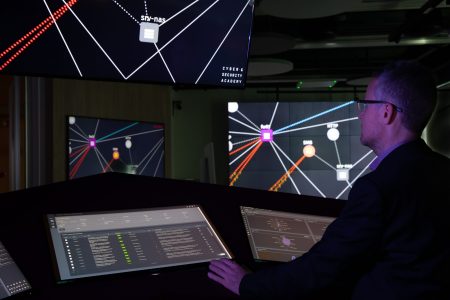(To Prof. Dario Velo (CSF: – Turin) and Prof. Pasquale Preziosa (Geopolitics of Security – Cusano Roma) Geopolitics is similar to common sense, common sense, rather than the theory of international relations, it sees the world not as we want it to be, but for what it really is (Pagnini, 2017).
“Geopolitics is the common sense of the next generation” (Stratfor, Geopolitical Basics) which not only describes the situation of a country but, through the investigation, tries to predict what could happen.
Predictions permeate all societies. There are four main levers of power that can confer security to a nation: Diplomacy, Information, the Military component and the Economy (DIME).
Between the four levers of national power”economic conditions are the most important” (Will Durant, 1935). If there were no security of continuity of food for the nation, the intelligence of its citizens would focus on individual survival with the decline of the state of civilization achieved.
Subscribe to the PRP Channel newsletter
A healthy economy finances everything that contributes to security. National security, therefore, is inextricably linked to its economy. There is a historical episode which confirms this vision. Jean Monnet at the beginning of the Second World War he prepared for his friend FD Roosevelt a strategy document, outlining how the United States could win the war.
The strategy proposed by Monnet convinced Roosevelt and proved to be the fundamental winning choice. It indicated how to make the American economic-industrial system the weapon to defeat the Nazis. A document that melted economics, politics, scientific and productive capacity.
Technology and research funding are a big part of geopolitics because both are the engines for the development of both civilian and military national industry.
The economy of a country is the ultimate product of the convergence of various factors such as: theinnovation, science, technology, human capital, the quality of the human resources training school, immigration policies, fiscal and industrial policies.
Every nation has to face the present opportunities and the constraints that must be respected in the choices to be made.
The set of these conditions determines the potential rate at which an economy can advance.
The intensity of competition conditions the achievement of this potential. (Michael E. Porter, 1998).
Preserving competition is an ongoing challenge, and the intensity of competition fosters a nation's prosperity. This is the economic order of Western countries based on innovation, competition and recognition of the results achieved.
The competition for power has always been fueled by the dominance of the best technologies.
Revolutionary new technologies are providing the opportunity for a new era of innovation and productivity improvement across all industries; these advances may be unprecedented in industrial history.
The digital age
In the digital age we live in, the data security , cyber security represent the new factors that contribute to determining National Security.
The new virtual world has been added to the real one ever. Scientific progress is not advancing linearly but exponentially.
The ongoing competition between nations is increasingly based on the intensity of the knowledge produced which can revolutionize the technological field (it will not be a technological adjustment but a technological revolution).
We are at the gates of the nascent capacity of Artificial intelligence which together with the Machine Learning they will restructure all the processes that brought the world to civilization (Hartley, Jobson, 2021).
Artificial Intelligence was the main discovery of the new Era. Artificial intelligence is able to make human intelligence more powerful and more productive (Barrat, 2013), thus conferring a higher learning speed and consequently a cognitive superiority of individuals and of the country system.
La National security in the digital age it is anchored to the development capacity of artificial intelligence in the various factors that converge in supporting the country's economy, making its industrial base competitive in order to confer sufficient levels of physical and economic security to the nation.
The digital age will therefore be revolutionary for the security of countries, because it will be able to improve the cognitive field in general, forecasts based on probability (Silver, 2012), lower the level of our ignorance (Sloman & Fernback, 2017) and therefore have positive effects on economic security.
By contrast, the digital age through the new science of persuasion (particular form of communication) has the possibility of operating, more than yesterday, on the social fabric for can confuse him in the core values of the nation: influence the present to obtain results in the future.
"Publicly available information is now the greatest means of intelligence
that we could accomplish” (Singer$Brooking, 2018). *
In a world characterized by an acceleration of change, conflict has become increasingly complex; consequently also National Security assumes the same characteristics of complexity.
Security in the digital age will always be a function of the ability to defend against external physical and virtual attacks and the internal security of the nation, but the economic and value parameters will change according to the nation's ability to adapt or not to the new cognitive tools to create , on the one hand, innovation, science and technology to generate more productivity, on the other to strengthen or not the national bond of values.
Evolution is the product of both the competition and cooperation of information.
*This new intelligence taxonomy arrangement is obviously relevant to all learning ecosystems, including education and propaganda. Controlling disinformation processes can only be accomplished with knowledge of authors, articles, rumors, images, publishers and platforms.


source Airpress
